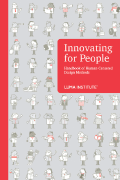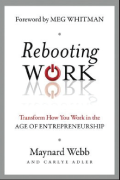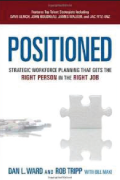TD Magazine Article
Make Something New
A review of Innovating for People: Handbook of Human-Centered Design Methods by LUMA Institute
Mon Apr 08 2013
Innovating for People: Handbook of Human-Centered Design Methods

LUMA Institute
(LUMA Institute, 86 pp., $34.95)
In Innovating for People, the team at LUMA Institute has created a portable resource (available in print and e-book) that outlines 36 human-centered design (HCD) methods.
LUMA describes HCD as "the discipline of generating solutions to problems and opportunities through the act of making 'something' new, where the activity is driven by the needs, desires and context of the people for whom we design."
This excellent, practical handbook isn't just for the "creatives" in your firm—the ones who design sexy new products with their Macs and iPads. Individuals who spend their time "changing existing situations into preferred ones" are considered designers.
The methods are categorized within three key skills of design: looking, understanding, and making. Any facilitator or business partner can add these methods to his toolbox and lead them successfully. Each method includes a brief description, a pictorial example, example applications, and a quick guide with helpful hints for first-time users.
Most useful are the several examples of method combinations—how to string two or three methods together into a process that will move you toward the answer to your business or design challenge. These methods will complement and enhance any formal development process you may already follow such as Stage-Gate, AGILE, ADDIE, and even various continuous improvement models.
I became familiar with LUMA's methods at an ASTD Forum meeting three years ago. Forum members use these method sets to turn Forum meetings into applied "lab" environments where attendees collaboratively design solutions to real-world business challenges.
At Johnsonville Sausage, our organizational learning and development team has used these HCD tools to dramatically increase our influence on the business. We customize method sets and facilitate events several times a year, during which the CEO, president, vice presidents, and their teams collaboratively co-design long-term strategic plans, near-term capital planning and allocation, annual marketing and sales plans, and "war-gaming" scenarios against our competitors.
If you are a leader, these methods can help your team create better solutions for your customers. If you are an instructional designer, these methods will help you to design better learning programs. And if you are a facilitator, these methods will help you to facilitate more interactive, participative training events that result in "stickier" learning.
Harder Than I Thought: Adventures of a Twenty-First Century Leader

Robert D. Austin, Richard L. Nolan, and Shannon O'Donnell
Harvard Business Review Press, 320 pp., $30
Written as a novel, this book gives potential CEOs and leadership students the opportunity to walk in the shoes of a new CEO and experience the complexities involved in 21st century leadership. Harder Than I Thought chronicles Jim Barton's first year as CEO of the fictional Santa Monica Aerospace. It details Barton's interactions with staff, the board, the press, unions, and other stakeholders as he works to transform the company from a military and manufacturing culture to a global aerospace integrator. Each chapter ends with questions to challenge readers to think about what their responses would be in a similar situation.
Rebooting Work: Transform How You Work in the Age of Entrepreneurship

Maynard Webb and Carlye Adler
Jossey-Bass, 224 pp., $27.95
Organizations have become ripe with job competition since many young people are entering the workforce while many experienced professionals no longer can retire. Experts have said that this is one of the worst times in history to be on the job hunt, but Webb and Adler think that such a claim may not necessarily be true. In Rebooting Work, the authors explain that, like the industrial revolution, the IT revolution offers opportunities that have never before existed. Webb, a former chief operating officer at eBay, explains how a person can harness technology to benefit his job search. The book effectively describes how to develop and maintain your career in this volatile time.
Positioned: Strategic Workforce Planning That Gets the Right Person in the Right Job

Dan L. Ward and Rob Tripp, with Bill Maki
AMACOM, 304 pp., $32.95
This title explores how today's ever-changing organization manages its human capital. The authors believe that talent management in the 2013 workplace either is lacking or not aligned well to the business, causing companies to steer off course. Positioned describes current talent best practices, the predicted future of people strategies, and an array of workforce analytics techniques used by such companies as Boeing, HP, and the U.S. Intelligence Community. With insight from well-known thought leaders, including Dave Ulrich, Jac Fitz-enz, and Naomi Stanford, this book examines the future of strategic staffing, virtual workplaces, disruptive technologies, and globalization, with a focus on those practices that will help your organization's talent to thrive.
What's on John Seely Brown's Bookshelf?
Future Perfect: The Case for Progress in a Networked Age by Steven Johnson. Johnson claims that a new model of political change is on the rise, transforming everything from local governments to classrooms, and from protest movements to healthcare.
Makers: The New Industrial Revolution by Chris Anderson. In an age of custom, do-it-yourself product design and creation, the collective potential of today's entrepreneurs will drive a resurgence of American manufacturing. Wired magazine editor Anderson believes these "makers," using the web's innovation model, will be at the forefront of the next big wave in the global economy.
Race Against the Machine: How the Digital Revolution Is Accelerating Innovation, Driving Productivity, and Irreversibly Transforming Employment and the Economy by Erik Brynjolfsson and Andrew McAfee. Drawing on research by their team at MIT's Center for Digital Business, the authors show that new technologies are rapidly encroaching on skills that used to belong to humans alone, causing profound economic implications.
